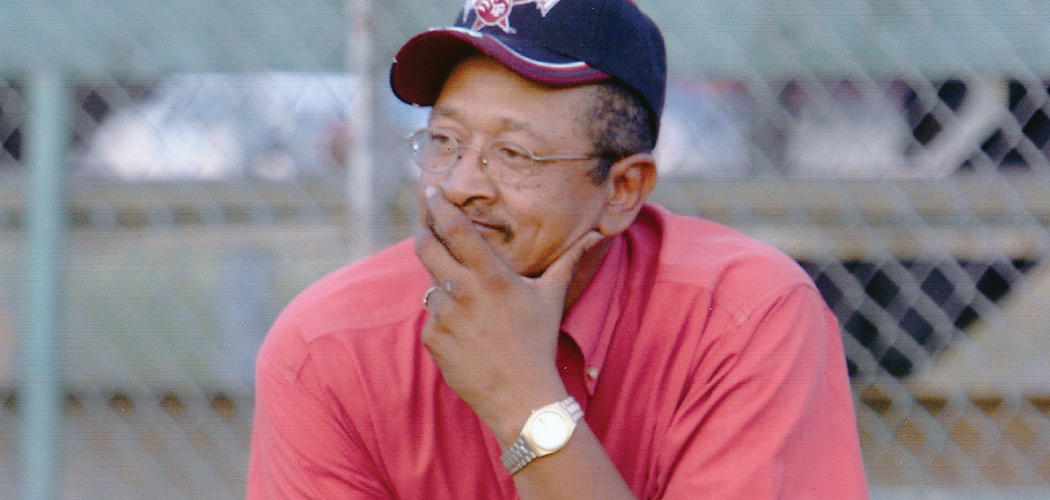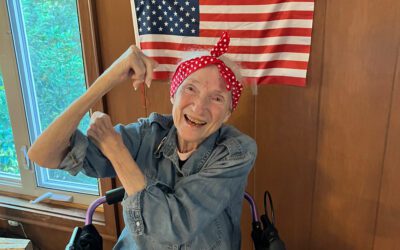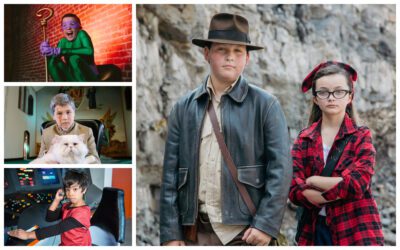[title subtitle=”words: Heather Steadham
Images: courtesy Hop Bray”][/title]
Garland “Hop” Bray is a man who figured it all out relatively early in life—but it took him a scared-straight-like trip to the only prison in Arkansas that executes death sentences to really get the message. After a teenage Hop broke into the Pepsi-Cola® plant in Fort Smith in the late 1960s, the judge, hoping to reform the mischievous nineteen-year-old, set a plan in motion: a three-day stint in the Cummins Unit of the Arkansas Department of Corrections. And for young Hop, it worked like a charm.“I thought I was just gonna go down there for a day and come home. And after I got down there, I found out it was a seventy-two-hour trip and I had to spend the night down there, and I thought, Aw man! I’m not gonna survive this.”
Survive it he did, though, and he even went on to succeed—with help from his father. When he first got back from Cummins, Hop had no intention of returning to high school to finish his senior year. However, his dad—the man he calls his only mentor—had a different plan for him. “My dad said, ‘Oh no. You going back to school. Make sure. You going back to school, and you gonna graduate.’” And in 1966, with the last graduating class at Lincoln High School (the segregated public high school in Fort Smith that closed its doors as integration became a national requirement), Hop received his diploma and went on to attend college on a baseball scholarship at the College of the Ozarks in Clarksville (now the University of the Ozarks). After just a year there, his family began to struggle financially, and he made the difficult decision to return home and get a job to help out.
But now, at the age of sixty-nine, Hop can look back over his life and see a path well-laid. Retired from the City of Fort Smith after forty-two years of service, he explains that he is pretty darned satisfied with the way things turned out. “With what schooling I had, I consider myself successful in life, you know. Because I own my own home. It ain’t big and fancy and two-story, but it’s mine. I own my vehicle. I don’t have that many bills. Rose [Hop’s wife] and I draw good retirement, so we’re comfortable. I’m not rich, I’m not poor. I’m just comfortable.”
Hop began volunteer-coaching both football and baseball for the Fort Smith Boys Club back in 1972. Considering that he still head-coaches football (and helps a buddy with a baseball team), his forty-three years of service means he’s put in even more years volunteering than he did getting paid by the City. Over his lifetime, he’s served as a member of the Young Men’s Association and the Ben Geren Softball Board of Directors. These days, he spends most of his time with the Fort Smith Round Table, a nonprofit organization classified as an Educational Organization for Youth Development begun by Arkansas State Representative George McGill. The mission of the Round Table is, in part, to establish an educational structure that works to enrich the lives of economically disadvantaged people.
To meet that end, Hop helps run an outreach program for at-risk youth called the Golden Knights. Students at Howard and Spradling Elementary and Kimmons Junior High are selected to attend weekly meetings that are designed to establish a mentoring relationship and to instill leadership. In his role as mentor, Hop addresses everything from proper meeting management to personal hygiene to the value of a formal education. “I tell my boys, ‘You guys are leaders. You have got to be the positive role model because everybody notices that you belong to the Golden Knights. When you come in here on Fridays with your shirt on, everybody says, ‘Oh! He’s a Golden Knight. I want to be a Golden Knight!’ So personal hygiene is really important. You can’t get up in the morning and throw a little water in your face and go on about your business.’ And we learn how to approach a person. How to introduce yourself. How to look them in the eye while you’re talking to them. We learn how to stand before people and talk and not be ‘uh uh uh.’ ‘Uh uh uh’ is not a word. Destroys your whole conversation.”
Another aspect of the Round Table’s mission is to cooperate with other charitable organizations, foundations, and government entities to empower economically disadvantaged people. This is yet another area where Hop has proven vital: back in 2008, Hop had a friend whose wife was suffering from ovarian cancer. As the family faced mounting medical bills, Hop came up with an ingenious plan: he approached several local civic organizations (one being Fidelity Women, his wife’s own club, a multifaceted community-based organization promoting family values, moral competence, and educational excellence) and proposed a joint-venture Christmas party. By charging ten dollars a head for entry to the party (a fee that has not increased in the seven years this program has continued), the organizations ended up donating almost five thousand dollars that year to help the family out. This project was such a success that the organizations joined to create Solomon’s Chest, a “community pot” where associations like the Fort Smith Round Table, Fidelity Women, and Delta Sigma Theta (an organization of college-educated women committed to constructive development of its members and to public service with a primary focus on the black community) can deposit funds that go to benefit worthy causes. Since Hop helped form Solomon’s Chest, the fund has raised more than ten thousand dollars for the likes of the Fort Smith Museum of History and the Elizabeth McGill Drop-In Center (which supplies money, goods, or services to the poor).
It seems like Hop isn’t so retired after all. “It’s like this,” he explains. “I’m retired. I work every day, but I work at what I wanna do. I don’t have to do what someone else wants me to do.” And for Hop, that work includes three days a week spent mentoring at schools, four days a week coaching Boys Club football, Saturdays spent doing things like rebuilding podiums for Unity Missionary Baptist Church, and Friday nights taking tickets at Northside High School football games.
Rose says, “He doesn’t know how to go someplace and sit down and do nothing.”
Hop laughs in response. “I like to go. I keep going. My dad told me a long time ago, ‘An idle body don’t live long.’ So I keep this one busy. I don’t get idle if I can help it.”
Looks like Hop is going to follow his mentor’s advice to
the very end.




